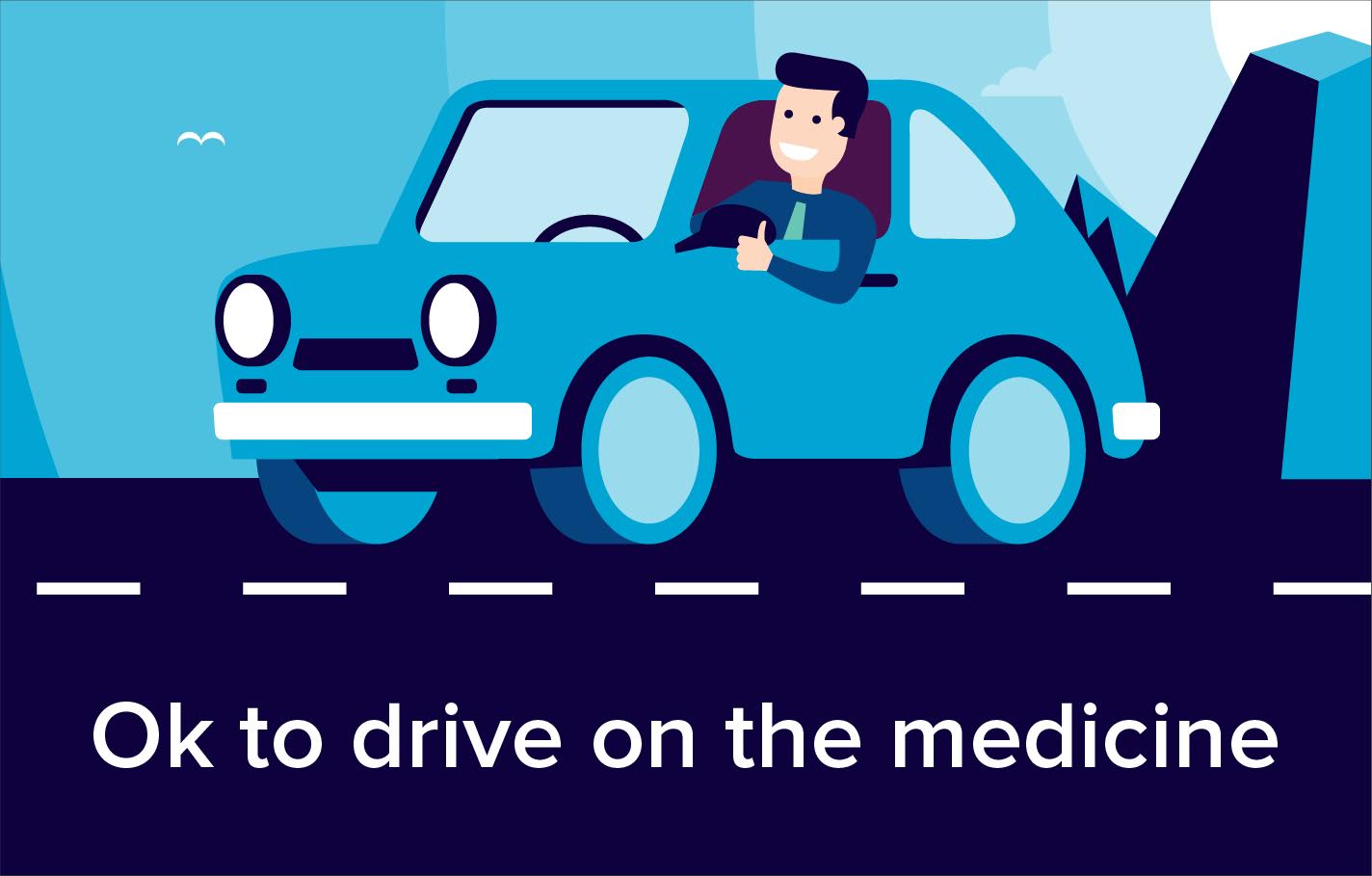Uniphyllin (Theophylline) tablets are used to treat asthma, long-term breathing difficulties such as emphysema and chronic bronchitis, and are sometimes used to treat heart failure in adults. Uniphyllin also reduces swelling in the lungs of asthma patients and relieves chest tightness.

Why have I been prescribed Uniphyllin Continus?
- Uniphyllin (Theophylline) tablets are used to treat asthma, long-term breathing difficulties such as emphysema and chronic bronchitis, and are sometimes used to treat heart failure in adults.
How does it work?
- Uniphyllin contains a drug known as a bronchodilator.
- It opens up the airways that are narrowed in asthmatic patients making it easier to breath.
- It also helps to reduce the inflammation in the airways associated with asthma and other respiratory diseases.
When and how do I take it?
Swallow your tablets whole with a glass of water. Do not crush or chew them. Uniphyllin Continus tablets are designed to work properly over 12 hours. If a tablet is crushed or chewed the entire 12-hour dose may be absorbed rapidly into your body. This can be dangerous, causing serious problems such as an overdose.
You should take your tablets every 12 hours. For instance, if you take a tablet at 8 o’clock in the morning, you should take your next tablet at 8 o’clock in the evening.
What’s the dose?
The usual starting dose for adults is one 200 mg tablet every 12 hours. Your doctor may increase your dose to one 300 mg or 400 mg tablet every 12 hours, depending upon how you respond to treatment. If you are elderly your doctor may suggest a lower dose.
Children
- Children over seven years of age can take these tablets.
- The required dose will depend on their weight and the severity of their breathing problems. This should be discussed with your doctor or pharmacist.
Could it interact with other tablets?
Tell your doctor or pharmacist if you are taking:
- certain other medicines to treat asthma or breathing conditions that contain theophylline, aminophylline, salbutamol, terbutaline or salmeterol;
- glucagon;
- steroids;
- diuretics to increase urine production;
- oral contraceptives;
- a herbal remedy called St John’s Wort (also known as Hypericum perforatum);
- aminoglutethimide, methotrexate or lomustine to treat cancer;
- carbamazepine or phenytoin to treat seizures, fits or convulsions;
- medicines known as barbiturates to help you sleep;
- adenosine, moracizine, diltiazem, isoprenaline, mexiletine, propafenone, propranolol or verapamil to treat high blood pressure and other heart problems;
- oxpentifylline to treat diseased blood vessels;
- medicines known as benzodiazepines, which are used as a sedative or to treat anxiety;
- sulphinpyrazone or allopurinol to treat gout;
- carbimazole to treat problems with your thyroid gland;
- cimetidine or nizatidine to treat stomach ulcers, indigestion or heartburn;
- certain antibiotics such as ciprofloxacin, clarithromycin, erythromycin, norfloxacin, ofloxacin;
- fluconazole to treat fungal infections;
- rifampicin or isoniazid to treat tuberculosis;
- medicines known as interferons, which you may be taking to treat conditions such as herpes, cancer, leukaemia or hepatitis;
- thiabendazole to treat worms such as threadworms;
- viloxazine, fluvoxamine or lithium to treat depression;
- disulfiram to treat alcoholism.
Also tell your doctor or pharmacist if:
- you are going to have an operation, as these tablets may interact with certain anaesthetics such as halothane;
- you have recently had, or are going to have a flu injection;
- you are taking a cough medicine or decongestant containing ephedrine
Herbal supplements should be used with caution and only after informing your doctor first.
What are the possible risks or side-effects?
If this medicine is prescribed for your child please monitor them carefully, as children are less able to describe any side effects that they might experience.
The following side effects have been reported in patients treated with these tablets:
- Feeling or being sick.
- Gastrointestinal disorders (e.g. upset stomach).
- Loss of appetite.
- Headache.
- Difficulty in sleeping, feeling restless, irritable and shaky.
- A fast or irregular heartbeat.
- Seizures, fits or convulsions.
If any of the side effects become serious, or if you notice any side effects not listed in this leaflet, please tell your doctor or pharmacist.
Can I drink alcohol while taking it?
Alcohol can alter the way these tablets work. Caution is recommended.
What if I’m pregnant/breastfeeding?
- Uniphyllin should not be administered during pregnancy unless considered essential by the doctor.
- It should only be given to breast feeding women when the anticipated benefits outweigh the risk to the child.
If you have any more questions please ask your Pharmacist.
Remember to keep all medicines out of reach of children
Please Note: We have made every effort to ensure that the content of this information sheet is correct at time of publish, but remember that information about drugs may change. This sheet does not list all the uses and side-effects associated with this drug. For full details please see the drug information leaflet which comes with your medicine. Your doctor will assess your medical circumstances and draw your attention to any information or side-effects which may be relevant in your particular case.
References:
http://www.mundipharma.ie/product/uniphyllin
https://www.hpra.ie/img/uploaded/swedocuments/2138256.PA1688_011_002.794164c4-5dc7-4218-b800-f2b87e9f67cd.000001pil.131125.pdf
https://www.medicines.org.uk/emc/medicine/1233
http://www.netdoctor.co.uk/medicines/allergy-and-asthma/a7706/uniphyllin-continus-theophylline/
http://www.drugs.com/uk/uniphyllin-continus-200mg-prolonged-release-tablets-leaflet.html

